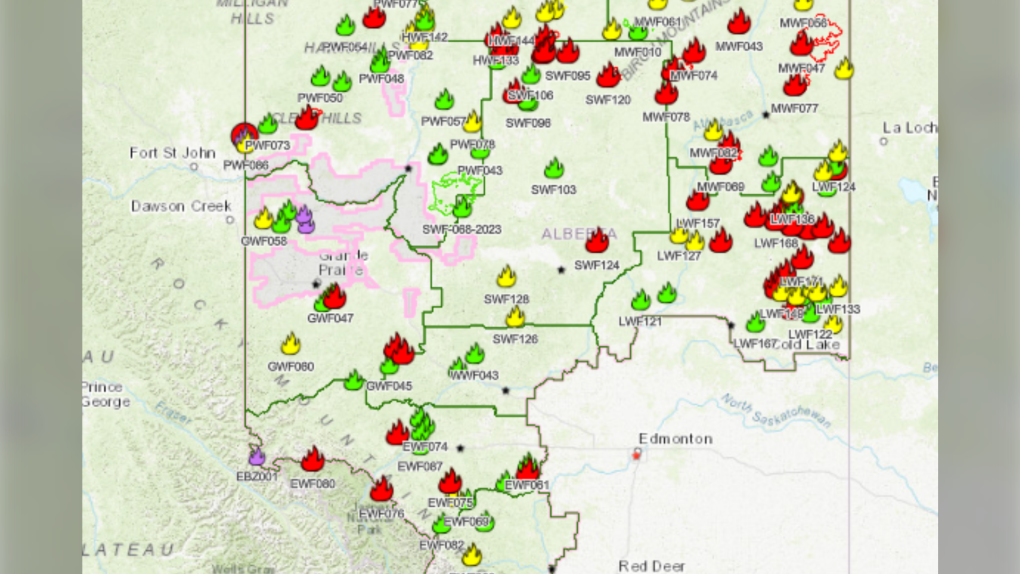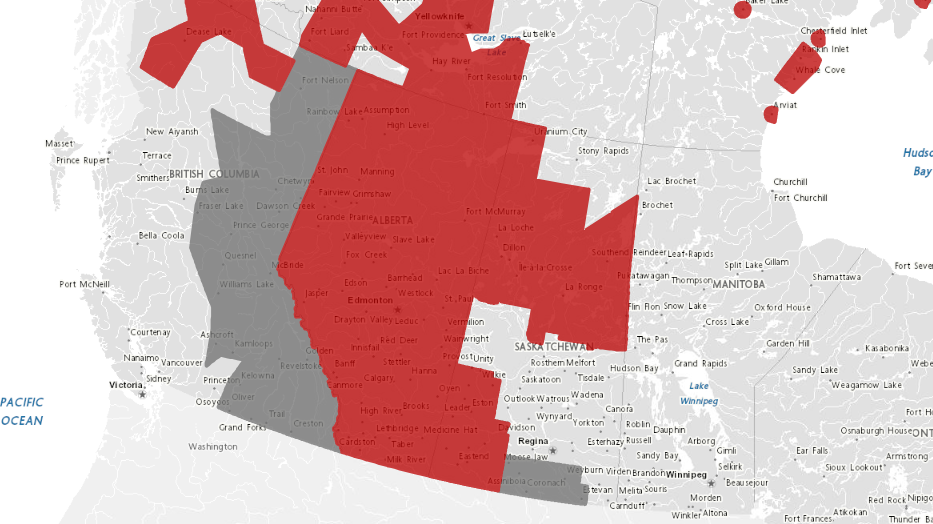Wildfire near Jasper National Park prompts evacuation order and highway closures
Multiple wildfires in Jasper National Park flared up with a vengeance late Monday night, forcing all park visitors along with the 4,700 residents of the Jasper townsite to flee west with little notice over mountain roads through darkness, soot, and ash.
Photos and video shared on social media illuminated a midnight cavalcade of bumper-to-bumper cars and trucks, headlights on, red tail lights glowing, cars inching, stopping, starting, crawling through swirling tendrils of acrid smoke.
“It’s wall-to-wall traffic,” said Edmonton resident Carolyn Campbell in a phone interview from her vehicle.
“It (the smoke) is pretty thick. We’ve got masks in the car.”
Campbell said it took hours to move just seven kilometres. She said they had enough gas but worried for others who fled with little in the tank.
The Jasper townsite — and the park’s main east-west artery Highway 16 — were caught in a fiery pincer. Fires threatening from the northeast cut off highway access east to Edmonton.
Another fire roaring up from the south forced the closure of the north-south Icefields Parkway.
That left one route open — west to B.C.
Park and town officials scrambled to clear up traffic gridlock, find fuel for vehicles, help vulnerable people get to safety while also marshalling resources to battle the fires.
“Everyone in Jasper must evacuate now,” the Alberta government stated in an emergency alert just after 10 p.m.
“Parks Canada is responding to multiple wildfire starts,” the federal agency added in its news release.
“This is an evolving and dynamic situation.”
 Alberta wildfire status map pictured on July 23, 2024.
Alberta wildfire status map pictured on July 23, 2024.
Evacuees were told they had five hours to clear out — by 3 a.m. local time Tuesday — and to carry with them key documents, pets, medication and any other emergency supplies.
Those without a ride were told to go the Jasper Activity Centre, Forest Park Hotel or Maligne Lodge.
In B.C., the province scrambled to find places to stay.
“B.C. will do everything we can to provide safe refuge for evacuees from Jasper, and are working as quickly as possible to co-ordinate routes and arrange host communities on our side of the border,” Bowinn Ma, B.C.’s minister for emergency management, said in a post on the social media site X.
The village of Valemount, just over the B.C.-Alberta boundary, opened its community hall to take in evacuees, with limited space for overnight lodging.
“We are able to give them some water, potentially some snacks,” village CEO Anne Yanciw said in an interview.
“For those who have been evacuated from their homes, we are able to give them vouchers for a place to stay and vouchers for food.”
 An Environment and Climate Change Canada graphic shows active weather warnings across Alberta on Tuesday, July 23, 2024.
An Environment and Climate Change Canada graphic shows active weather warnings across Alberta on Tuesday, July 23, 2024.
Yanciw said there was no immediate need to direct evacuees to move on further west to Prince George – a larger centre with more facilities to handle evacuees.
“They (the evacuees) are already tired. It’s the middle of the night, and a three-hour drive to Prince George could just mean accidents. We’re telling them that (Prince George) is their final destination, but just not tonight,” Yanciw said.
Back in Alberta, travel was not recommended west of Hinton, which is just east of the national park.
“Please avoid the Jasper National Park area along Highway 16 and allow first responders to do their jobs safely,” RCMP said in a news release.
Parks Canada said evacuations had been carried out at numerous campgrounds, as well as the Athabasca Hostel and the Palisades Stewardship and Education Centre.
Jasper National Park is the largest national park in the Canadian Rockies, home to campgrounds and extensive trail networks.
The Jasper blazes were one of multiple fires throughout Alberta that have already forced another 7,500 people out in a string of remote communities.
The province has been baking and sweltering for days in scorching 30 C plus temperatures.
More than 160 wildfires were burning across Alberta, coughing up clouds of smoke, obscuring the sky.
This report by The Canadian Press was first published July 23, 2024.
View original article here Source









